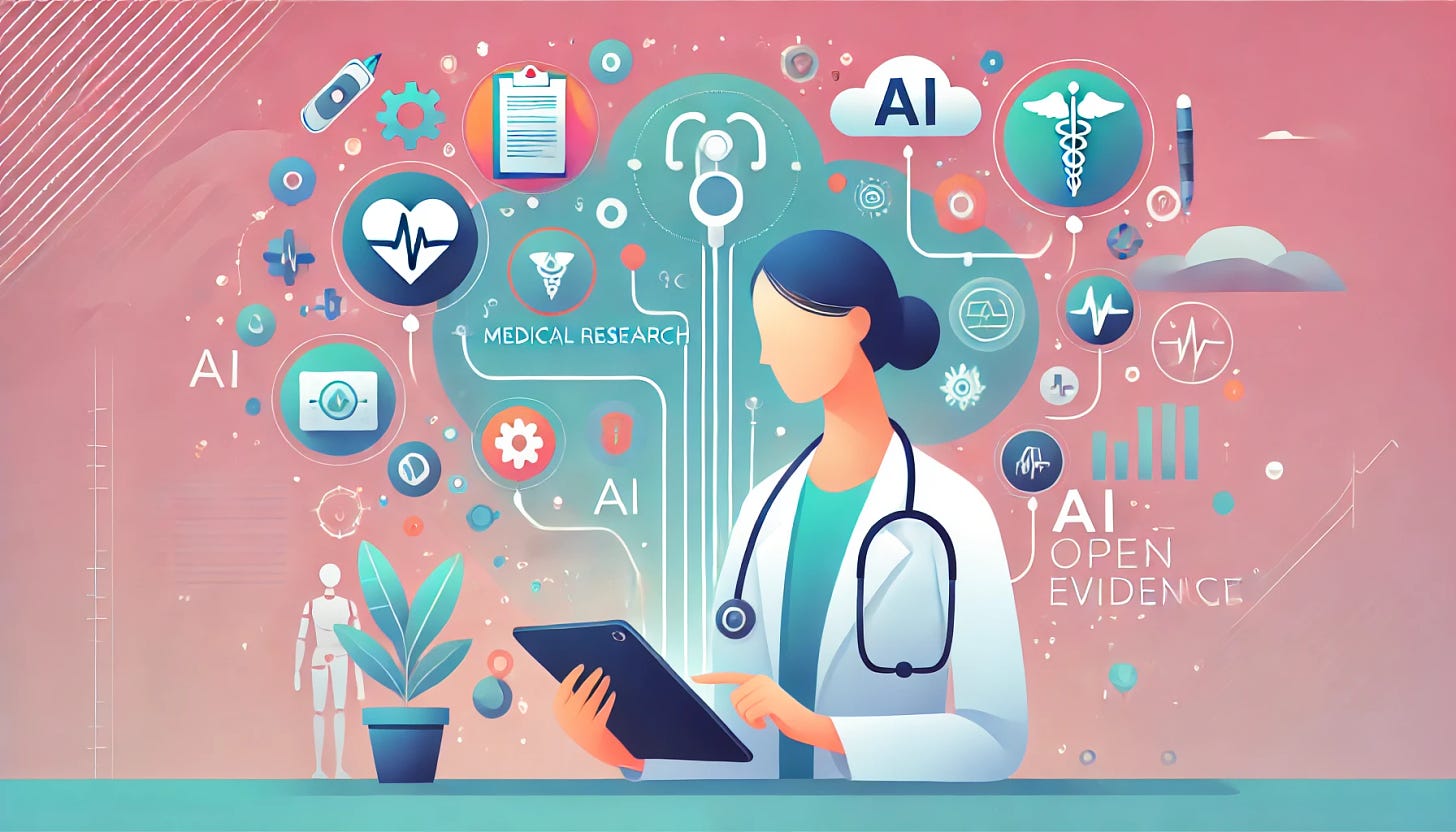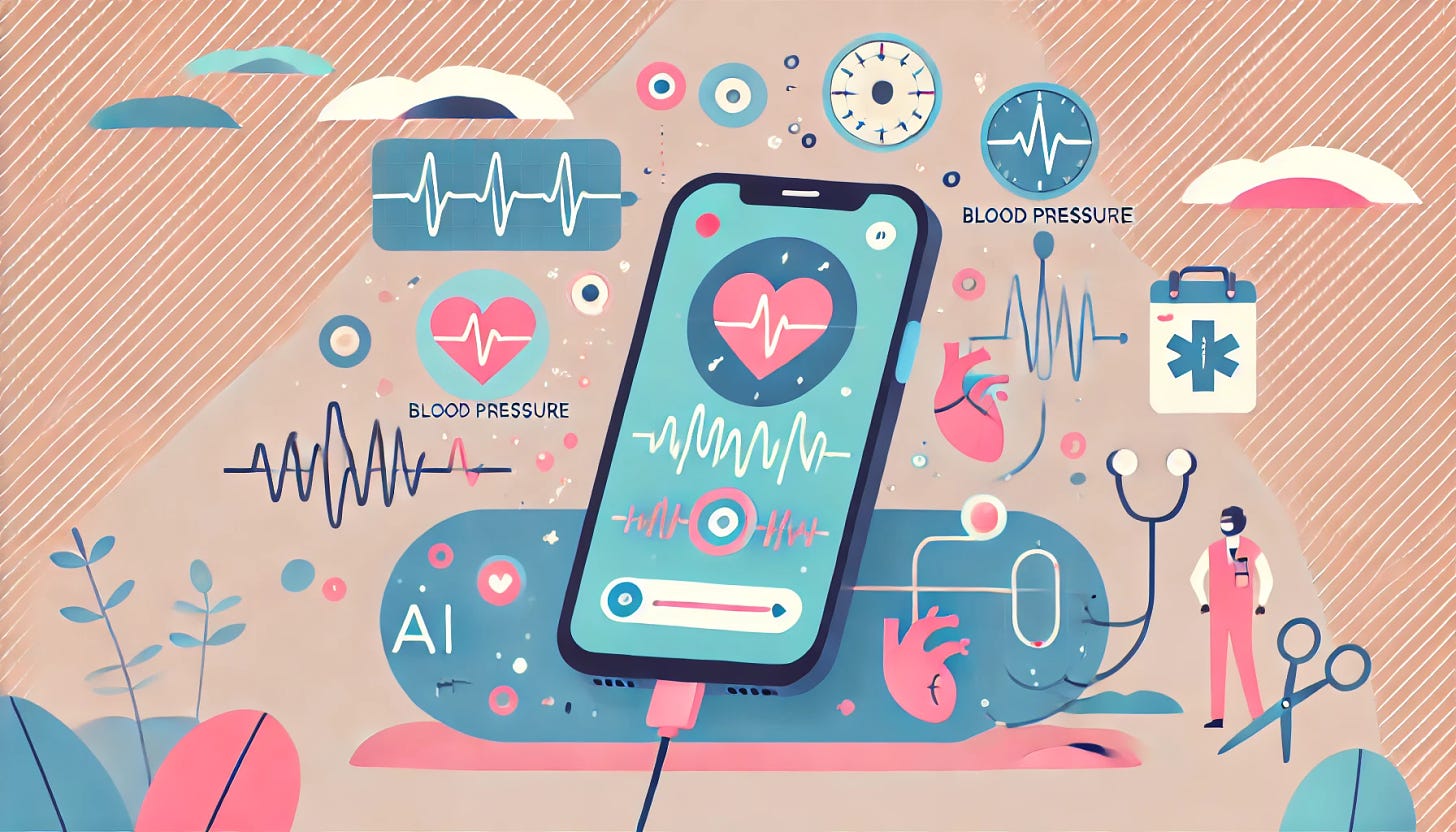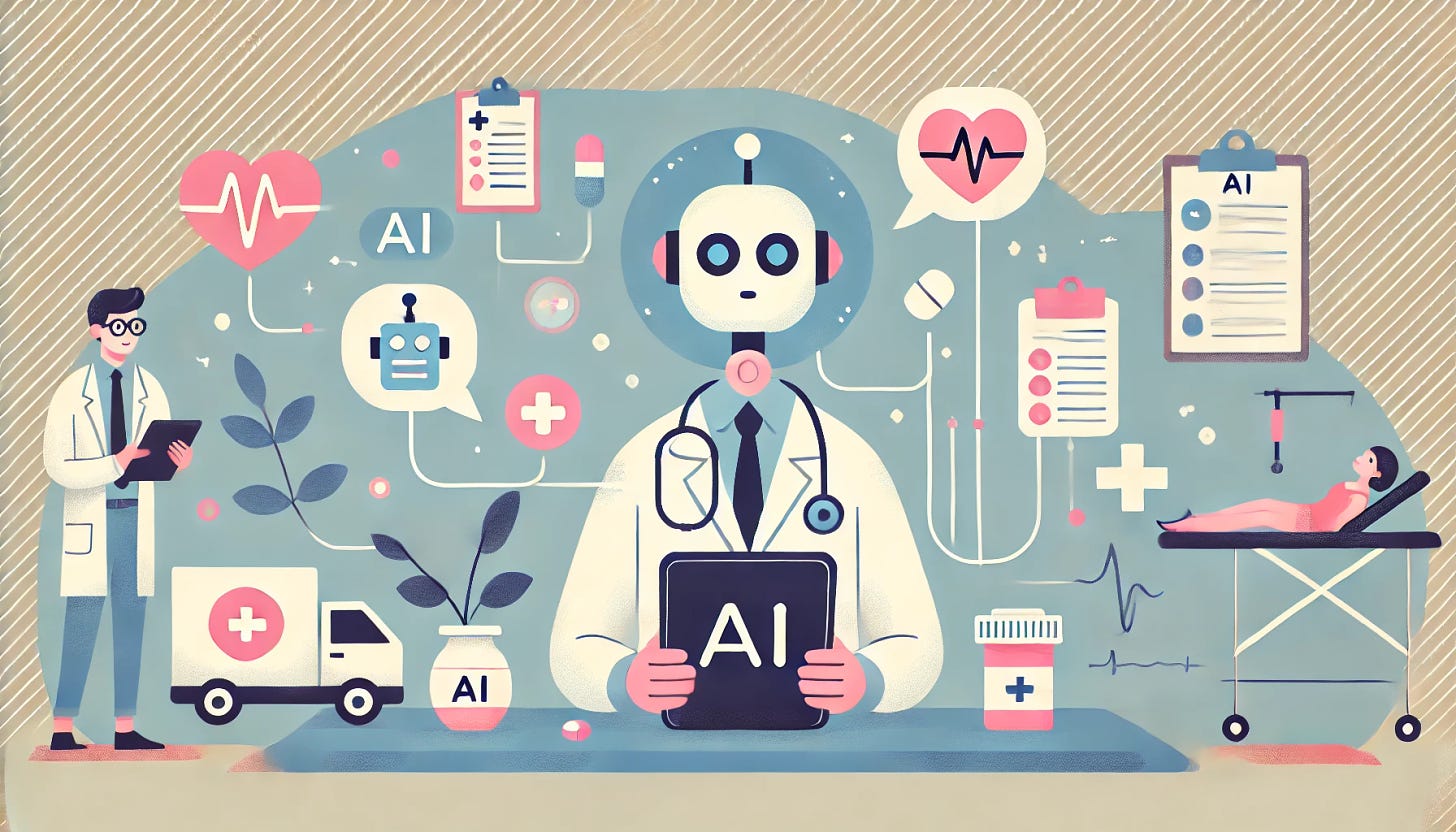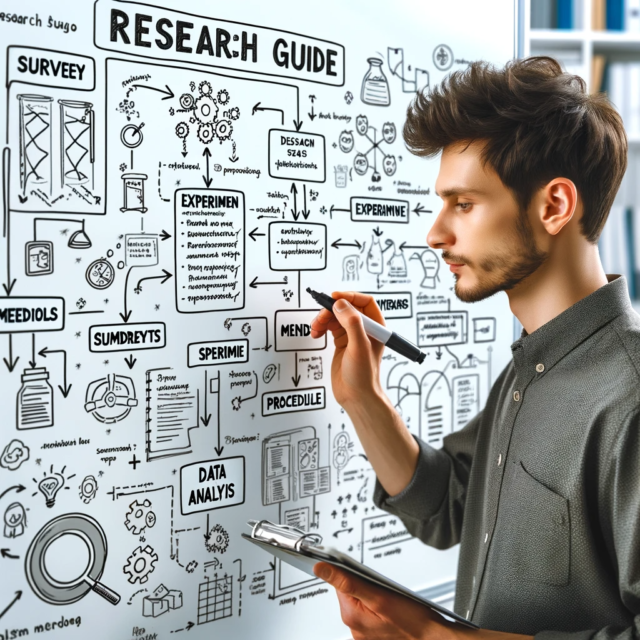Open evidence AI Doctor Aid, AI Voice Hypertension capture, Health Chatbot Skepticism
Listen to the audio version powered by NotebookLLM

Drowning in medical info? OpenEvidence to the rescue
Medical research doubles every 73 days, and staying on top of it can feel like trying to drink from a firehose. Enter OpenEvidence, an AI-powered platform designed to aid healthcare professionals. Think of it as a supercharged ChatGPT but laser-focused on delivering evidence-based insights from peer-reviewed studies.
For doctors like first-year residents, it’s a game-changer. From rounding on patients to reviewing the latest treatment guidelines, OpenEvidence provides real-time access to high-quality research. Whether diagnosing complex cases or deciding between treatments. It saves time and reduces information overload, allowing clinicians to focus on patient care rather than endless journal articles.
Despite minor limitations, like the limited depth on niche topics, OpenEvidence offers a revolutionary way to make faster, evidence-backed decisions. Helping doctors stay ahead in an ever-evolving medical landscape. Ready to upgrade your clinical game? OpenEvidence might be the clinical assistant you didn’t know you needed.

AI listens for high blood pressure.
Researchers at Klick Labs have developed an AI-powered mobile app that can detect hypertension simply by analyzing a patient’s voice. Nearly 250 participants recorded their voices up to six times daily over two weeks, allowing the app to analyze hundreds of vocal biomarkers. Many of which are undetectable by the human ear. The AI could predict elevated systolic and diastolic blood pressure with an accuracy of 84% for women and 77% for men. The findings offer a promising, non-invasive way to catch hypertension early.
The research team hopes this tech will lead to more accessible interventions, potentially preventing serious complications like heart attacks or dementia. Ongoing studies are also exploring AI’s ability to detect conditions like type 2 diabetes using vocal biomarkers. With promising early results published in Mayo Clinic Proceedings: Digital Health.

AI in the exam room: Doctors turning to ChatGPT
AI tools like ChatGPT are making their way into healthcare, with a recent Fierce Healthcare survey finding that 76% of physicians use large language models (LLMs) for clinical decision-making. Conducted in collaboration with physician social network Sermo, the survey reached 107 doctors—mostly in primary care, endocrinology, neurology, and cardiology—60% of whom are in academia. It’s worth noting that Sermo’s tech-savvy audience might skew toward early adopters, but the trend remains significant.
Doctors are using these AI tools to check drug interactions (60%), support diagnoses (over 50%), generate documentation, and plan treatments (40%). However, this reliance on public tools like ChatGPT raises concerns about the risks of inaccurate, unverified information. Since LLMs rely on publicly available data and lack real-time updates, errors can occur—especially when critical patient details are omitted from prompts.
With no standardized guidelines in place for AI in healthcare, experts stress that physicians must vet AI outputs carefully. While AI offers convenience, doctors remain responsible for clinical decisions, making regulation and training essential to its safe integration into medical practice.










